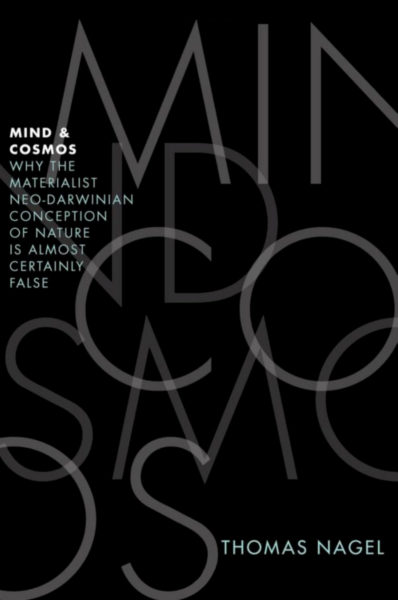


Jay Richards on the Art of Answering Evolutionists

Stephen Meyer Interviewed on Ben Shapiro’s “Sunday Special”

Dissent of Man
If someone had predicted a year ago that Oxford University Press would publish a book with the subtitle Why the Materialist Neo-Darwinian Conception of Nature is Almost Certainly False, I might have wondered what alternate universe he was inhabiting. But Oxford did publish it, and the aftershocks among the intellectual elite have yet to abate.

The book’s author, philosopher Thomas Nagel, is a professor at New York University and the recipient of numerous awards and honors, including an honorary doctorate from Oxford University; fellowships from the National Science Foundation and the National Endowment for the Humanities; and elections to such august bodies as the American Academy of Arts and Sciences and the American Philosophical Society. It is a testament to Professor Nagel’s stature that his critique of Darwinian theory was allowed to be published at all. But his stature has not immunized him from a flood of abuse and even suggestions of creeping senility.
It’s not often that a book by a professional philosopher attracts the notice — let alone the ire — of the cultural powers-that-be. One can think of Allan Bloom’s The Closing of the American Mind in the 1980s, but other examples are hard to come by. At any rate, Mind and Cosmos is well on its way to becoming a book that can’t be ignored by the thinking public. Thus far, it has been denounced in the Nation and the Huffington Post, dubbed the “most despised science book of 2012” by the London Guardian, defended in the New Republic (where Nagel’s critics were blasted as “Darwinist dittoheads” and a “mob of materialists”), subjected to a feature story in the New York Times, and put on the cover of the Weekly Standard, which depicted Nagel being burned alive, surrounded by a cabal of demonic-looking men in hoods.
The author has attracted special displeasure from the powers-that-be for using Mind and Cosmos to praise intelligent design proponents such as biochemist Michael Behe and philosopher of science Stephen Meyer. As the New York Times explained, many of Nagel’s fellow academics view him unfavorably “not just for the specifics of his arguments but also for what they see as a dangerous sympathy for intelligent design.” Now there is a revealing comment: academics, typically blasé about everything from justifications of infanticide to pedophilia, have concluded that it is “dangerous” to give a hearing to scholars who think nature displays evidence of intelligent design.
Read More ›